By February 24th, it will be the first anniversary of the outbreak of the Russia-Ukraine conflict. Over the past year, the conflict between Russia and Ukraine has impacted the global energy and food supply, and the supply shortage has triggered a sharp rise in energy and food prices, further pushing up global inflation. At the same time, the artillery fire of the war also threatened the safety of nuclear energy. The Zaporozhye Nuclear Power Plant was bombarded many times, which aroused the attention of the world. In addition, the conflict between Russia and Ukraine has intensified the confrontation between major powers and the division of the world. The process of globalization has been hit again, and the supply chain is facing restructuring, which has a long-term impact on the global economy.
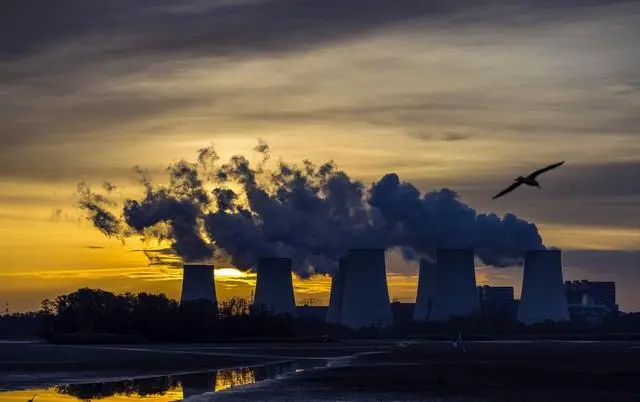
The sun rises behind several cooling towers of a power plant in Petz, Brandenburg, Germany. The fall in 2022, the two 500-megawatt generating units that had been on standby since 2018 and 2019 were restarted.
Energy supply goes from strained to relieved
Since the escalation of the conflict between Russia and Ukraine, the European Union has followed the United States to impose multiple rounds of sanctions on Russia, causing energy prices in European countries to soar, and the sanctions have been counteracted. Last summer's heat wave and drought hit Europe, severely affecting the production of electricity from hydropower, nuclear power and coal power. The tight energy supply has pushed the price of natural gas and electricity in Europe to record highs. The price of natural gas in Europe has reached 10 times the level before the epidemic.
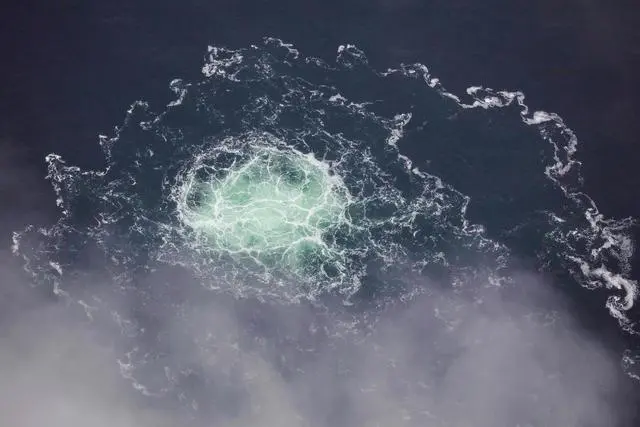
On September 28, 2022 local time, gas leaking from the Nord Stream-2 natural gas pipeline in the Swedish Economic Zone in the Baltic Sea is being released. For the fourth time in almost a year, a leak has been discovered in an undersea gas pipeline linking Russia to Europe. Relevant EU officials said that the pipeline was sabotaged intentionally and that investigations are underway. The natural gas market of many countries in the European Union has long relied on Russian supplies. Russia has supplied gas to Europe through multiple pipelines for decades. In the past, a considerable part of Russian natural gas exported to Europe was transferred through pipelines in Ukraine, with an annual gas transmission volume of more than 100 billion cubic meters. Uzbekistan gets a lot of transit fees from it every year. Russia-Ukraine relations have become increasingly tense, so Russia has built several other pipelines to Europe that bypass Ukraine, including the Nord Stream-1 and Turkish Stream, which have been opened and operated, to ensure that the supply of gas to Europe is not restricted by Ukraine. Nord Stream-2 could have doubled Russia's direct gas transmission to Germany. Even if Ukraine completely shuts down the transit pipeline, it could guarantee the stability of Russia's natural gas supply to Germany and other European countries. However, affected by geopolitical factors, this Russian-European energy cooperation project was shelved. The US government continues to obstruct the opening of the Nord Stream-2 project. Two days before Russia launched a special military operation against Ukraine on February 24 last year, the German government announced it was suspending the approval process for the project.
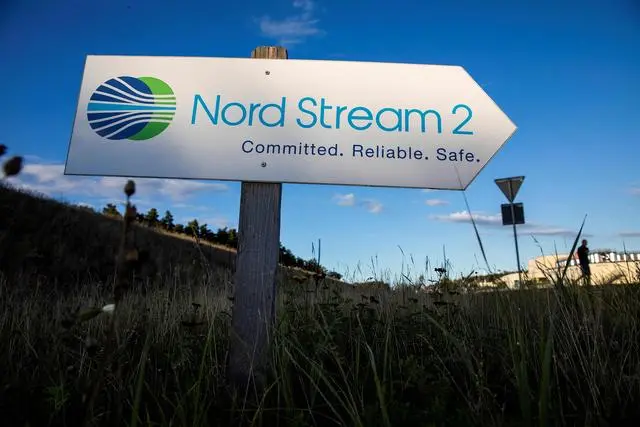
On March 1, 2022 local time, the Swiss Minister of Economy stated that the operating company of the Beixi-2 natural gas pipeline project has been forced to lay off more than 140 Swiss local employees. Currently, the operating company is still considering filing for bankruptcy. The decision to cut jobs comes amid the German government's announcement to suspend the approval process for Nord Stream-2.
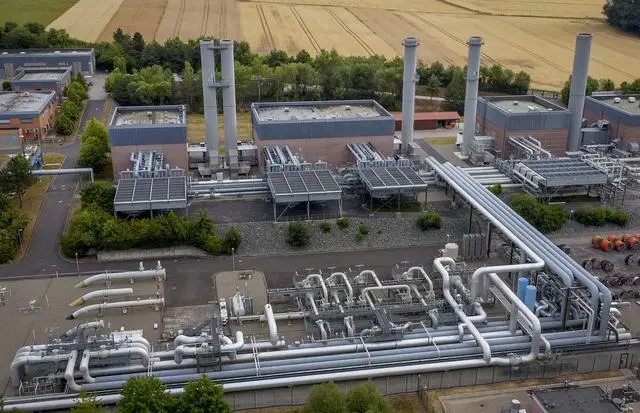
On July 26, 2022 local time, EU member states reached a consensus on a greatly adjusted gas-saving plan, agreeing to reduce natural gas consumption by 15% on a voluntary basis to deal with the natural gas shortage facing the EU. As the United States and Europe continue to tighten sanctions, Russia has significantly reduced its gas supply to Europe via Nord Stream-1 since mid-June, and announced at the end of August that it will suspend gas transmission due to pipeline maintenance. Many European countries are currently facing a shortage of natural gas supply and high prices, and are looking for alternative sources of gas.
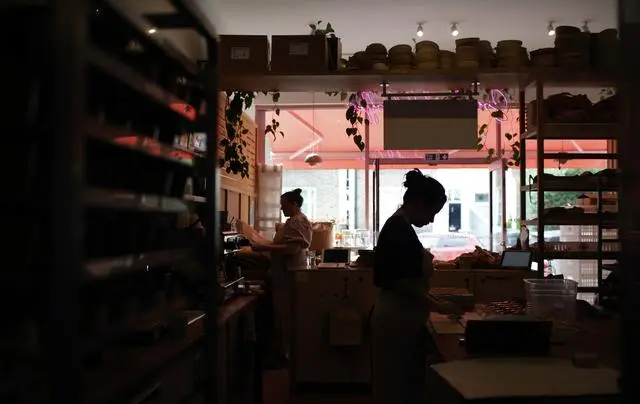
On September 21, 2022 local time, in London, England, staff worked at the Sourwounde Sophia bakery. Electricity bills at the Crouch Street store in north London have more than tripled since the start of the year, according to owner Sophia Sutton Jones. The bakery's woes underscore the threat to its operations from soaring energy prices, while also sparking a cost of living crisis in Britain and much of Europe.
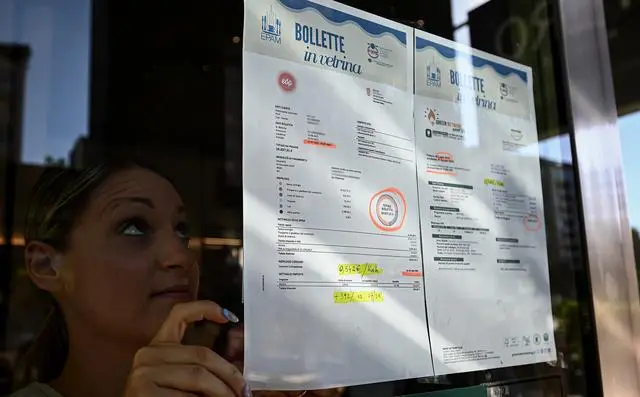
On September 22, 2022 local time, in Milan, Italy, a bar showed their energy bill. Compared with the same period last year, the electricity bill increased by 394%. In order to save energy, many European countries have put forward quite detailed calls and requirements. The Spanish cabinet approved the country's energy-saving plan on the 1st, including heating in public places at a maximum of 19 degrees Celsius, air conditioning at a minimum of 27 degrees Celsius, and turning off shop window lighting after 10 pm. In addition, the government encourages people to commute by bike to save fuel in their cars.
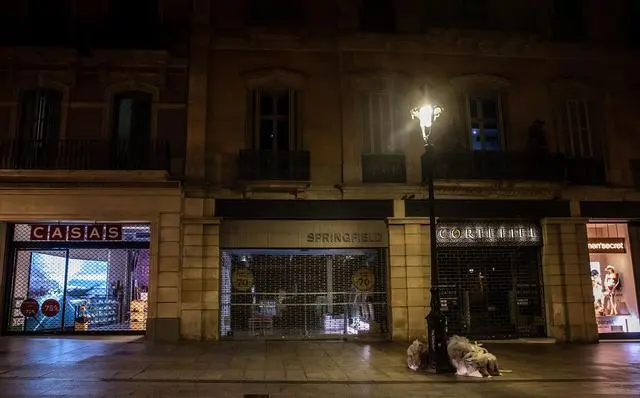
On August 10, 2022 local time, Barcelona, Spain, retail stores, according to new regulations requiring businesses to turn off lights at night, the main lights are turned off. The Spanish government has introduced several new regulations to save energy, including turning off lights after 10 pm and preventing air conditioning from being set too low in summer or too high in winter. In response to the comprehensive energy-saving action called by the German government, the German capital, Berlin, will officially shut down the external lighting of a number of public facilities from the night of July 29, 2022 local time. The range of lights-out involves a series of famous Berlin landmarks and attractions such as the Victory Column. The city of Hannover, Germany will cut off the hot water supply of public buildings, swimming pools and gymnasiums.
In January, the price of natural gas began to fall as winter temperatures rose in Europe, which undoubtedly sent a positive signal. But the drop in prices has yet to be reflected in consumers' and businesses' energy bills. While Europe's energy crisis is far from over, 2023 couldn't have gotten off to a better start for policymakers worried about how to survive the winter and secure future energy supplies. Unusually mild weather in Europe, including record-breaking warm New Year's Day winter temperatures in several countries, further tempered already falling demand for natural gas, sending wholesale prices lower. Gas prices are now close to half their October 2022 prices, nearly five times lower than their record peak in August 2022, and close to levels seen before the Russia-Ukraine conflict broke out.
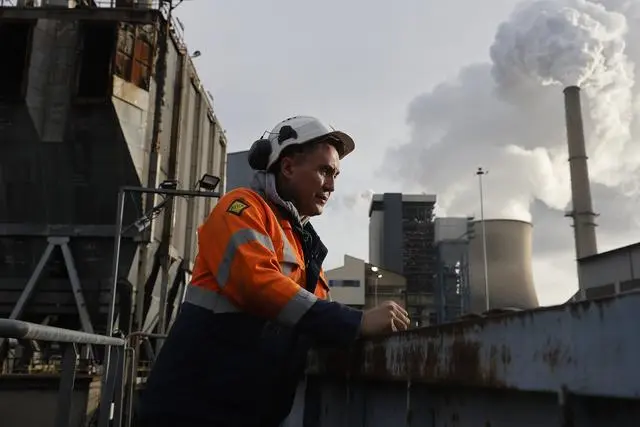
In response to the tense energy supply situation, several European countries that had vigorously called for abandoning coal reopened coal power plants and supported coal power projects; France plans to restart the construction of nuclear reactors in its territory and speed up nuclear power construction; the European Parliament voted to support the labeling of natural gas and nuclear energy Green label"... European gas storage levels are higher than historical levels, according to gas infrastructure companies. The EU's reserves average 83.5%, which is significantly higher than the 54% in the same period in 2022; the stocks of Germany, Poland, Croatia, Denmark, Spain and Portugal all exceed 90%.